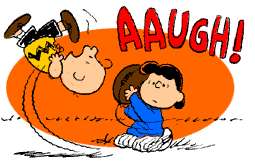I have a rule: I don't criticize classroom teachers on my blog over their practice. It is just too easy, mean, and unproductive, and teaching is just too hard. Of course, I'm more than happy to slam teachers over their crappy punditry, but that's different. I'm going to add an exception now, though: classroom practice used as examples by professional wonks is fair game.
So... as Elizabeth Green points out, Andy Rotherham shares a quote that Ed Sector, Ed Trust and and others use as an example of a "grade 7 standards based rigorous writing assignment:"
Is this actually a good assignment? First off, I think there is an error in punctuation or usage in every sentence. Not really a good start, nor an indicator of the kind of high quality teacher Ed Sector ostensibly sees at the center of school reform.
The more times you re-read this sentence, as a student struggling to figure it out would do, the less sense it makes:
Your thesis will state specifically what Anne's overall personality is, and what general psychological and intellectual changes she exhibits over the course of the book
People have specific overall personalities? Really? Like... what? Andy Rotherham is an asshat? Is that a specific overall personality description? Do they teach this taxonomy of personality types in seventh grade in California?
However this works, it must be terse, because it is only part of your thesis. Oddly, you move from the "specific" personality to "general" psychological and intellectual changes to complete your thesis. Wouldn't it make more sense to ask about her general personality and specific changes, or just one specific change? Unless you're trying to train kids to write long, dull, unfocused papers for the sake of writing long papers (the standards call for 500 to 700 words at this level), you don't want them to dance around a whole set of psychological and intellectual changes. You want kids to laser in on the text; you want a close reading of one key part of the text and its implications.
But gee, this assignment does seem pretty hard! Rigor! Is this really what the California Language Arts standards require -- is this standards-based? This is the most relevant standard for the content of this assignment:
3.3. analyze characterization as delineated through a character's thoughts, words, speech patterns, and actions; the narrator's description; and what other characters think, say, and do.
The assignment does a poor job at addressing this standard. The assignment should focus on the text, instead of a bogus "psychological" and "intellectual" analysis of Anne Frank. The entire premise of this assignment is wrong. You cannot assign a 21st century 12 year old in California the task of analyzing "Anne Frank," at most they can analyze the text and her characterization of herself. And waitaminute, does the first sentence really say this is a "novel?"
Using the words "psychological" and "intellectual" gives a veneer of "rigor," but it is pure pretense. Is there any rigor to these kids understanding of psychology or intellectual development? Or is it just handwaving? I pulled down my copy of Bridging English, which has some good stuff about psychological profiles in responses to literature, based on different theoretical constructs like Erik Erikson or Lawrence Kohlberg's work. If the teacher who created this assignment gave their students any sort of framework to approach this analysis (and give it some "rigor"), it would have been good form to mention this in the prompt. However, if they did get into that stuff, they would have been wandering pretty far off the standards reservation, because I can't find anything -- I can't find the words "psychology" or "intellectual" -- in the Language Arts, History and Social Studies or Science standards.
In the end, this assignment is no worse than a million other lousy tasks handed out every day, and the world hasn't stopped turning, and I'm sure a lot of kids gain valuable experience in writing crappy essays for high school English class via this assignment.
The point is that this assignment is just one fake prop among many held up by self-styled education reformers who know or care nothing about the messy details of teaching and learning. Apparently none of them can tell a well constructed assignment from tossed off pretense. Standards are just a cudgel to be wielded, who cares what they actually say? We must have highly qualified teachers -- like this English teacher who calls The Diary of a Young Girl a novel and has issues with tense consistency and comma placement. We cannot be freed of these fools too quickly.
This post brought to you by Arrogant Bastard Ale. It's oaked! Happy Thanksgiving!




